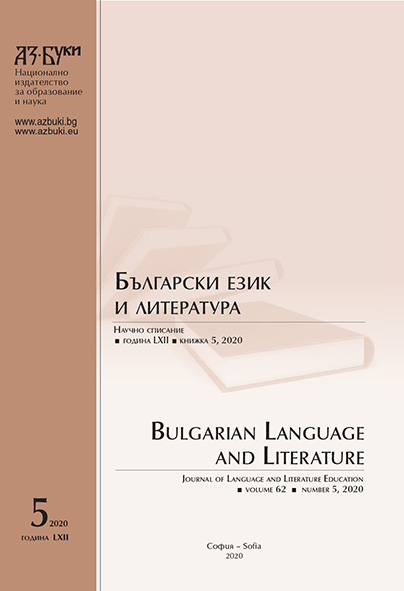Интерферентни грешки в употребата на глагола съм в българската реч на чужденци
Interference Errors in the Usage of the Verb “to be” in Bulgarian Speech of Foreigners
Author(s): Venera Mateeva-BaychevaSubject(s): Social Sciences, Language studies, Language and Literature Studies, Education, Foreign languages learning, Applied Linguistics, Language acquisition, Cognitive linguistics, Eastern Slavic Languages, School education, Vocational Education, Adult Education, Higher Education , Philology, Inclusive Education / Inclusion, Stylistics
Published by: Национално издателство за образование и наука „Аз-буки“
Keywords: applied linguistic; Bulgarian as foreign language; interference errors; forms of the verb; auxilary verb; wording
Summary/Abstract: The report presents the persistent interference errors in the speech of foreign students in Bulgarian with attention to the acquisition and developing of the forms of the Bulgarian auxiliary verb “to be” The problem is dealt theoretically and from Applied Linguistics point of view. We analyze linguistic output of respondents in whose native (first) language there is not a structural equivalent of “to be” compared with the output of speakers with a first language including “to be”. On the basis of our results we make some conclusions in Psycholinguistics and Applied Linguistics path.
Journal: Български език и литература
- Issue Year: 62/2020
- Issue No: 5
- Page Range: 484 - 493
- Page Count: 10
- Language: Bulgarian
- Content File-PDF

